Bochum-Grenoble Memory Colloquium
2021-2022

First semester
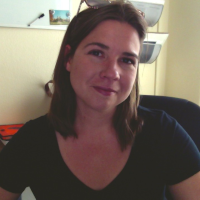
Sarah Robins
(University of Kansas)
Memory science and memory traces
16:15-17:45 CEST (UTC+02:00), 14 October 2021
Abstract: Philosophy of memory’s recent emergence as a distinct and active subfield involves a general interest in aligning our philosophical conception of memory with memory science. But memory science is broad, encompassing a range of fields, theories, and methods. And while memory once served as (quite literally) a textbook example of unification across levels of explanation and inquiry, the present state of memory science is far more fragmented. It is thus important to consider which areas of memory science are informing the philosophy of memory and how this focus influences subsequent theorizing. Philosophers of memory are, by and large, focused on research in cognitive neuroscience and neuropsychology. This encourages a view of memory as reconstructive, akin to imagination, and without much need of memory traces. Meanwhile, memory researchers in neurobiology proclaim that we are in the midst of “engram renaissance” (Josselyn, Köhler, & Frankland, 2017). Engram is a new word for an old idea, the current scientific term for the memory trace. New tools like optogenetics have produced a number of discoveries, exciting not only for what they reveal about the basic mechanisms of memory, but for the opportunities they provide to connect with broader areas of memory science. The memory trace (or engram) is, however, woefully undertheorized—a neglect that persists even as the philosophy of memory expands. In this talk, I sketch a way to address this, developing a theory of the engram/trace that captures work in contemporary neurobiology and conveys its significance for our theorizing about memory more broadly. The account also serves to appropriately situate the neurobiology of memory as a central contributor in the interdisciplinary inquiry into memory, and as an area of memory science worth the attention of philosophers of memory.

Martin Dresler
(Donders Institute)
Mnemonic training and exceptional memory skills
14:00-15:30 CEST (UTC+02:00), 15 October 2021
Abstract: Memory skills differ considerably across the general population – from age-related memory loss to the outstanding feats of memory champions. Memory research focuses largely on normal or impaired memory, whereas little is known about the cognitive and neurobiological basis of exceptional memory skills. I will present insights from a series of studies on the world’s leading memory champions, and naïve subjects undergoing mnemonic training. Our studies suggest that the outstanding skills of memory champions rely on mnemonic strategies that allow for more efficient neural coding, and a direct access to long-term memory structures also during classical working memory tasks. Moreover, training in these strategies drives regional brain activation and network connectivity also in normal individuals towards the neural patterns observed in memory champions.
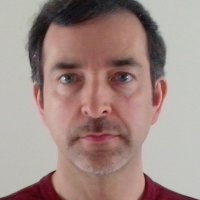
Jérôme Dokic
(Ecole des hautes études en sciences sociales)
Revisiting the two-tiered account of episodic memory
16:15-17:45 CEST (UTC+02:00), 28 October 2021
Abstract: The aim of this presentation is to clarify, in the light of philosophical and psychological research on affective metacognition, the nature of the episodic feeling, which determines what it is like to remember or relive in one’s mind an episode from one’s own past. The hypothesis defended is that the episodic feeling is a metacognitive experience, which rests on mechanisms that monitor the source of the relevant information. Although there is presently no direct psychological evidence for the existence of the episodic feeling, studies on a specific kind of feelings of knowing, which are especially tied to episodic memory, can help cast light on the nature of the episodic feeling. Overall, the hypothesis that the episodic feeling is a metacognitive experience squares well with a general theory of metacognition. It leads to a two-tiered account of episodic remembering. On this account, the phenomenology characteristic of episodic remembering is extrinsic to the memory state itself. When we have a memory, it feels episodic only if it is properly monitored at the metacognitive level. However, an episodic memory can be attributed to a subject in the absence of an episodic feeling. The memory itself can be a mere unconscious mental condition, as in some cases of tip-of-the-tongue experiences, or its content can be transparent to the subject via a conscious imagining.
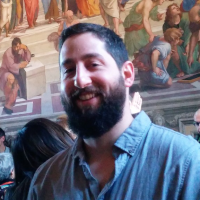
Jonathan Najenson
(Hebrew University of Jerusalem)
Learning as a part of memory
16:15-17:45 CET (UTC+01:00), 11 November 2021
Abstract: Encoding is a forgotten topic in the philosophy of memory. While storage and retrieval have been heavily discussed, this has not been the case with encoding. Part of the reason why philosophers ignore encoding is the identification of encoding processes with perceptual processes. Memories are often characterized as mental representations whose contents are causally derived from perception. Moreover, it is widely assumed that learning something entirely new depends on perception. These presuppositions have led philosophers to mainly focus on perception in order to understand the relation between remembering and past events. In this talk, I argue that perceiving an event is not necessary for encoding that event and, consequently, learning something new can be dissociated from perception. Drawing on recent findings from optogenetic experiments, I show how a novel association is encoded independently of previous sensory experience. These studies have found that new information can be implanted directly in the nervous system and need not be causally derived from perceiving a sensory event. Such findings suggest that learning something new could be accomplished just by imitating how associative memories are encoded. Surprisingly, I argue, optogenetic studies of memory implantation indicate that learning about novel events occurs entirely intracranially. I consider the implications of these findings for causal and simulationist theories of memory.

John Sutton
(Durham University)
Personal memory, the scaffolded mind, and cognitive change in the Neolithic
16:15-17:45 CET (UTC+01:00), 25 November 2021
Abstract: Cognitive archaeologists deploy increasingly precise evidence about changes in material culture, social organisation, technical skill, and symbolic activity to identify historical changes in cognition. Although memory is a natural domain for such enquiry, some views of its nature, functions, and evolution make it hard to find room for substantial cognitive change on the timescales in question. I explore a hypothesis about the emergence of richer personal memories around the larger stable settlements of the Neolithic Middle East like Çatalhöyük, c.7000-6000 BCE. I bring archaeological evidence into contact with two bodies of work on memory in cognitive theory: on the social and communicative role of episodic recall, and on the scaffolded or situated nature of remembering. Basic human capacities for remembering, imagining, and mental time travel, in place well before the Neolithic, are deployed or knitted together in specific, culturally-inflected ways. Children learn skills of and norms for autobiographical remembering in slow, multi-staged, variable processes of enculturation, involving diverse cognitive, affective, interpersonal, and narrative resources. The hypothesis that the Neolithic saw significant if uneven changes in these norms and practices, with new demands on tracking events and commitments over time, can help sharpen the requirements for assessing claims about cognitive change.
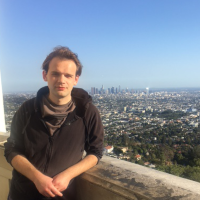
Urim Retkoceri
(Ludwig Maximilian University of Munich)
Memory, society, and moral responsibility
16:15-17:45 CET (UTC+01:00), 09 December 2021
Abstract: When we look at the past, there might be many things we wish to avoid repeating. One way to do this is by learning from the past, enabling us to create a better future. At the same time, knowledge about the past might bring with it a special kind of responsibility for the future. In this talk I will take a look at an intersection that has scarcely been explored so far: memory, society and moral responsibility. While false memories on an individual level have received their fair share of attention, the philosophical study of false memories on a collective level has largely been overlooked. Yet, if what we remember about the past is false, what can be learned from it? To narrow down the topic, I start by briefly sketching the possible interactions between an individual and society when it comes to the moral responsibility of remembering. I then focus on the moral responsibility an individual has towards society, and society has towards itself at different points in time. Specifically, whether there might be a moral responsibility to ensure the veracity of memories in, or possibly of, a society will be discussed. This will include looking not only at already existing memories but also at the moral responsibility a society might have concerning memories a future self, or a future society, might foreseeably have (i.e. past-directed as well as future-directed moral responsibility). Given the recent interest in disinformation phenomena such as fake news, getting the ball rolling on such an intersection as described here seems long overdue in the philosophy of memory.

David Colaço
(Ludwig Maximilian University of Munich)
What counts as a memory?
16:15-17:45 CET (UTC+01:00), 13 January 2022
Abstract: The study of memory recently has seen new proposals for defining its target. Several researchers propose broad definitions of memory, which extend to many phenomena, from human episodic memory to reflex sensitization, some which occur in “unconventional cognitive systems.” They extend beyond exemplars like me remembering what I ate for breakfast and do not express notions like representation or phenomenology that we often find in rich definitions that narrowly apply to kinds like declarative memory. These definitions may seem too broad, suggesting that they extend to phenomena that don’t count as memory or illustrate that memory is not a natural kind. I explain why researchers might adopt a broad definition of memory. Broad definitions can promote the investigation of phenomena counted as memory on these definitions, which facilitates testing what claims about phenomena project. Thus, rather than expressing what is known about memory, researchers propose these definitions to test inferences about phenomena. In this sense, broad definitions of memory serve as hypotheses. In addition to presenting my account, I address three potential objections. First is the dissimilarity objection: there are too many differences amongst phenomena for broad definitions of memory to be scientifically valuable. Second is the natural kinds objection: generic memory is not a natural kind, so no definition of it is valuable. Third is the knowledge objection: enough about memory is known, so there is no need for definitions of memory as hypotheses. Throughout, I argue that adopting a definition as a hypothesis exemplifies what I call kinding in progress: categorizing targets when their discovery is on-going, and their shared properties are largely unknown.
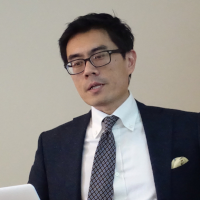
Wayne Wu
(Carnegie Mellon University)
Intention as practical memory
16:15-17:45 CET (UTC+01:00), 27 January 2022
Abstract: This talk explicates intention as a type of memory: practical memory. While the connection between intention and memory is part of the psychology of prospective memory, the connection has not been actively discussed in philosophy. I suggest a different perspective, focusing on intention-in-action as a type of memory at work and thus, a type of practical memory. The idea of memory for work suggests working memory. This talk explores the idea that much working memory research delves into the active role of intention in controlling behavior. If so, philosophers of mind and action have much to learn from working memory research and working memory researchers can see their research as probing a crucial part of intentional agency (and correspondingly, much to learn from philosophers of action). I’ll close by exploring how this affects thinking about various topics such as sensory recruitment theories of working memory maintenance, vigilance, steadfastness in action, and, if time, our privileged access to intentional action.
Second semester

Michael Barkasi
(Performance Sonification, Toronto)
Remembering what your brain doesn't
16:15-17:45 CEST (UTC+02:00), 12 April 2022
Abstract: When I remember the time I visited Riga, I’m in a mental state directed at my trip to Riga, which is a particular past event. What makes it the case that this mental state, instanced when I remember my trip, is about that trip? The standard explanation appeals to mental files. The idea is that while in Riga, my neurocognitive systems collected information pertaining to the trip in the mental equivalent of a “file”. Hence, the file affords an informational connection back to the trip. It’s this informational connection which makes the file about my Riga trip. Later, when I recall the trip, this file is accessed. My mental state, as I remember the trip, is about that trip because what I’m doing is accessing a file about the trip. The problem with this standard account is that it assumes the now defunct preservationist theory of memory. According to our best psychological and neural evidence, my neurocognitive systems don’t bother to maintain a file on my Riga trip. Instead, when I remember the trip, a general-purpose “episodic construction system” isotropically pulls information from all over the brain to reconstruct what happened on the trip. A new file is opened, one filled potentially with information not directly originating with the trip itself. Simulationist views go even further than this basic constructivist picture, suggesting that the reconstructed file might lack any informational connection back to the original trip itself. Thus, constructionist and simulationist views threaten to break the information link fixing the referents of our memories. How can my mental state, as I remember my trip to Riga, manage to be about Riga, when this state is the construction of a new mental file with links to many sources of information and perhaps no link back to the remembered trip itself? In this paper, I solve this problem by suggesting that while we may fail to have an information link mediated by a mental file, remembering still achieves reference through information links between remembering subject and remembered event. The insight is that the referents of mental states need not reduce to the referents of subpersonal representations like mental files. While neurocognitive states like mental files certainly play a role in reference-fixing information links, there need be no neat reduction of personal-level mental states to subpersonal neurocognitive representations. I can remember my trip to Riga, even if there is no neurocognitive state in my head which refers to the trip. My reference-fixing informational connection back to the trip depends on my brain retrieving and manipulating information relevant to the trip, but there need be no single file through which that connection “flows” exclusively. Memory isn’t the only case in which personal-level reference comes apart from subpersonal representation. As I briefly review, we often perceive and think (non-mnemonic) singular thoughts about things for which there is no representation in our brain. Drawing on Ruth Millikan’s work on teleosemantics, I suggest that reference-fixing at the personal level exceeds reference-fixing at the subpersonal level because organisms (people) are more sophisticated sign users than the parts of their brain. Reference-related functions emerge at the level of the whole organism due to the way organisms are situated and live in the environment.

Kristina Liefke
(Ruhr-Universität Bochum)
Episodic remembering is (mostly) not a propositional attitude
16:15-17:45 CEST (UTC+02:00), 26 April 2022
Abstract: Recent work in the philosophy of memory has debated the question whether episodic remembering is a propositional attitude (see e.g. Fernandez, 2017; Sant’Anna, 2018). My talk investigates this question from the perspective of the philosophy of language, viz. by looking at episodic memory *reports*. I identify a number of features that distinguish episodic remembering from ‘vanilla’ propositional attitudes (e.g. believing, wishing). These include the informationally complex contents of (paradigmatic cases of) episodic memory reports, the dependence of episodic memory content on the content of a past experience, and the possibility of shifting perspective between remembering and the experience. While these features are — at least in principle — compatible with the propositional nature of episodic memory contents (see Fernandez, 2017; pace Sant’Anna, 2018), they question the familiar view of propositional attitudes as relations (only to) propositions.
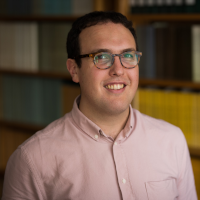
Daniel Munro
(University of Toronto)
Memory, imagination, and the epistemology of testimony
16:15-17:45 CEST (UTC+02:00), 10 May 2022
Abstract: Mental imagery often occurs during testimonial belief transmission: testifiers often episodically remember scenes they witnessed firsthand while describing them, and listeners often imagine the scenes testifiers describe. When testimonial transmission is successful, the listener's mental imagery often comes to resemble the testifier's episodic memory image. I draw on empirical work on imagery and language comprehension to explore the psychological roles of these parallel processes of mental imagery in each subject's mind. And I argue that getting clear on these psychological roles has implications for some fundamental issues in the epistemology of testimony.

Richard Heersmink
(Monash University)
Preserving memory and narrative identity for dementia patients
11:00-12:00 CEST (UTC+02:00), 24 May 2022
This talk is organized in conjunction with the "4E Cognition and Memory" workshop. To register, see here.
Abstract: One goal of this talk is to argue that autobiographical memories are extended and distributed across embodied brains and environmental resources. This is important because such distributed memories play a constitutive role in our narrative identity. So, some of the building blocks of our narrative identity are not brain-bound but extended and distributed. Recognising the distributed nature of memory and narrative identity, invites us to find treatments and strategies focusing on the environment in which dementia patients are situated. A second goal of this paper is to suggest various of such strategies, including lifelogging technologies such as SenseCams, life story books, multimedia biographies, memory boxes, ambient intelligence systems, and virtual reality applications. Such technologies allow dementia patients to remember their personal past in a way that wouldn’t be possible by merely relying on their biological memory, in that way aiding in preserving their narrative identity and positively contributing to their sense of well-being.

Teresa McCormack
(Queen's University Belfast)
The value of memory and anticipation: A developmental perspective
16:15-17:45 CEST (UTC+02:00), 14 June 2022
Abstract: In this talk, I will be describing initial findings in a line of research that is attempting to measure the utility (positive or negative) attached to ‘non primary’ experiences (Lowenstein & Elster, 1992). Such experiences include experiential memory used to relive past pleasures/pains or the contemplation of future pleasures/pains. I will describe our initial findings that indicate that adults do indeed attach significant utility to memories. However, these findings also suggest that the contemplation of future experiences may be accorded greater utility than memory for the same experiences, and indeed that adults may not always consider the future utility that memories may hold. I will discuss our findings that indicate that children do not seem to show the same pattern of findings as adults regarding the value of memory and anticipation, and consider possibly explanations of this developmental difference.
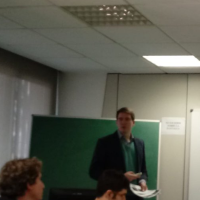
Simon Brown
(Johns Hopkins University)
Episodic memory across species and across purposes: What really matters and why
16:15-17:45 CEST (UTC+02:00), 28 June 2022
Abstract: A central part of human cognition is episodic memory: roughly, remembering events we personally experienced, whether watching a movie last Friday or a holiday to Greece ten years ago. Which if any other animals enjoy the same kind of memory? Decades of research suggests that many species, from rats to jays to cuttlefish, have states with some of the features of human episodic memory. Some non-human animals represent numerous unique features of individual events, including how long ago they occurred and the order in which sub-events occurred. And such states often depend on the hippocampus, just as in humans. However, no other animal will have states with exactly the features of typical human episodic memories, any more than they will have skeletons exactly like humans’. For example, non-human animal memory may well involve less narrative structure, and no explicit higher-order awareness that this was an event which occurred in my past. This raises a question: which features does an animal’s mental state need to possess to count as being an episodic memory, and which features of human episodic memory are merely features of human episodic memory? There is little agreement on how to even go about answering this question — or similar questions which arise for many other important mental states and capacities. The best approaches on the market are (i) to search for what if anything makes episodic memory a natural kind, and (ii) to adopt a form of pluralism on which what matters to episodic memory is largely determined by specific aims on particular occasions. I argue that each of these approaches gets something right, but limits the theoretical use of a notion like ‘episodic memory’. The pluralist approach rests on a simplistic understanding of how different aims of inquiry fit together, and as a result misses the potential utility of a less context-sensitive notion of episodic memory. The natural kind approach does (somewhat) avoid this problem, but relies on empirically dubious claims about episodic memory’s actually being a natural kind in the relevant sense. I then sketch an approach to determining which features are essential to a state’s counting as episodic memory, irrespective of species, which can allow for a notion of episodic memory which can do the work which the pluralist account misses, whilst avoiding the problems with the natural kind approach. Roughly, this approach involves searching for sets of features which are jointly important to episodic memory’s broader contribution to intelligence.

Lu Teng
(New York University Shanghai)
The justificatory power of memory experiences
16:15-17:45 CEST (UTC+02:00), 12 July 2022
Abstract: Psychological research has revealed that episodic memories are constructive in nature. My talk explores how episodic memories, despite being constructive, can provide justification for beliefs about the past. It might seem that foundationalism and reliabilism are in a position to deal with memory beliefs with newly generated contents. In my talk, I first reject these theories in light of the empirical findings. I argue that foundationalism is problematic by comparing certain kinds of memory construction to cognitive penetration to perception. I explain how different versions of reliabilism all face a skeptical challenge. Instead, I propose an alternative, two-factor theory to account for the justificatory power of episodic memories.

Thomas Fuchs
(Universität Heidelberg)
Embodied memory
16:15-17:45 CEST (UTC+02:00), 26 July 2022
Abstract: Memory includes not only the explicit recollections of the past, but also the acquired, embodied dispositions, skills, and habits that implicitly influence present experience and behavior. This embodied memory is based on the habitual structure of the lived body, which connects us to the world through its operative intentionality. Body memory occurs in various forms that can be classified as procedural, situational, intercorporeal, incorporeal, pain, and traumatic memory. The lifelong plasticity of body memory enables us to adapt to the natural and social environment, in particular, to anchor ourselves in the social and cultural space. On the other hand, the structures accrued in body memory are an essential basis of our experience of self and identity: a person's individual history and idiosyncrasy are also expressed in his or her bodily habits and behaviors. Finally, sensations or situations experienced with the lived body can function as implicit memory cores that, under appropriate circumstances, can release their enclosed content, as in Proust's famous madeleine experience. This unfolding or explication of body memory is of particular importance for therapeutic approaches that work with body experience.